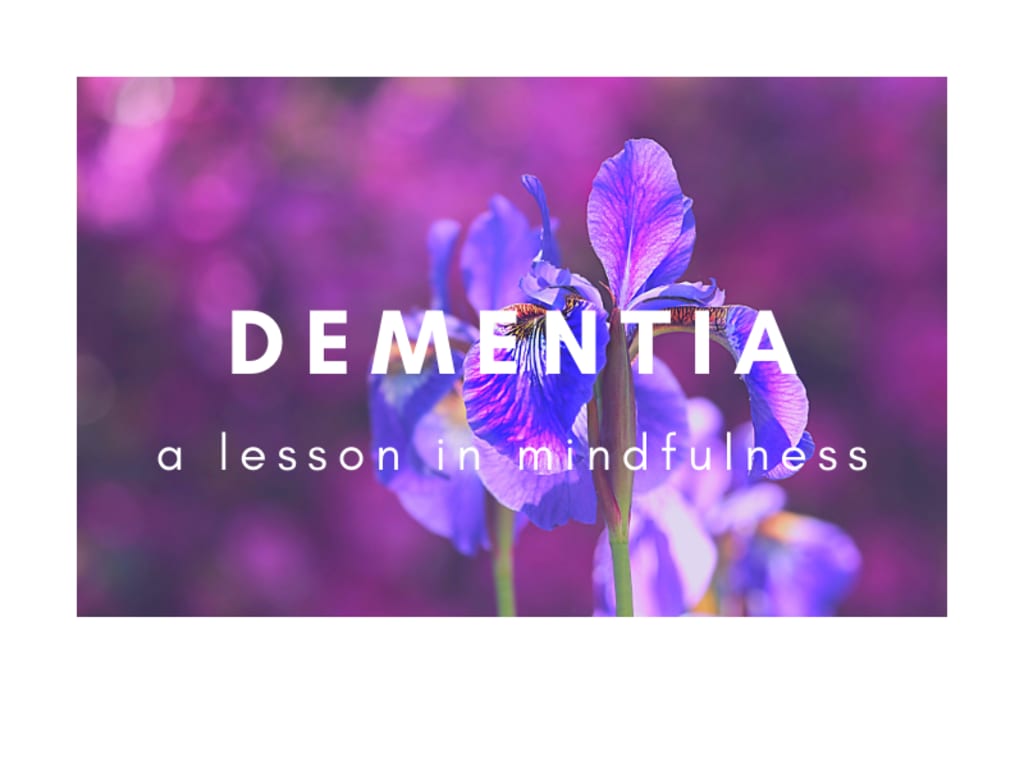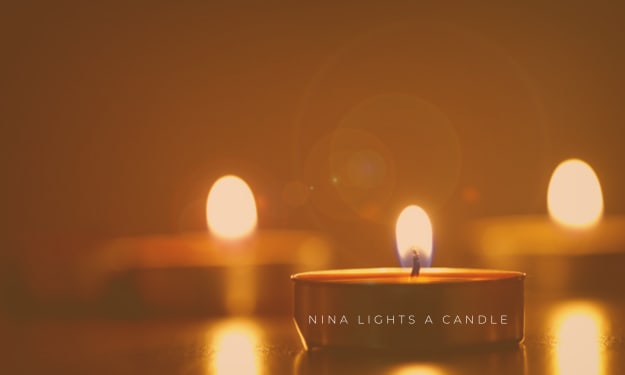
My dad had lived a long, full life. He grew up in war-torn Greece, only to be sent to another war as a young adult, migrating to Australia in his thirties, meeting my mum on the way and raising a family of four and dogs, there were always dogs – oh and a cat, rabbits, pigeons and a couple of ducks – there were always animals. It was a good life, and then he developed dementia just to forget it all.
When dad’s geriatrician first delivered the diagnosis my scientist brain kicked in – I am a scientist by degree and I thought “it’s anatomy and physiology, I can work with this”, and I did. I studied dementia to understand it’s mechanism, I learned all the care techniques to look after my dad. I learned how to speak to him to help him understand me, learned all the behavioural aberrations so that I could better understand him and help him. I put my science brain to work. My mother’s approach was different. She used her instincts, she felt out of control, sad. She felt the loss of her partner. She was an amazing carer to him while living at a loss within herself. My approach was more scientific until that day when my father was so unresponsive that I wondered what the point to life was. For that moment, I stopped being scientific and experienced being a daughter watching her father fade away.
This is when my spiritual struggle began. Questions such as ‘what is the point to life, why bother if this is how you end up? What if dad didn’t have a family to care for him, what if he was all alone, who would look after him?’ I was finally beginning to understand what my mother was feeling having reached this point much sooner than I did. She had already trained herself to deal with this particular existential crisis. She too grew up in war-torn Greece, having asked all these questions of herself when she was just a young girl. She had already learned that life isn’t fair, life is hard, you can’t control decisions made by others, you certainly can’t stop many illnesses, and all you can do is take one day at a time, one moment at a time, deal with the hardships and celebrate the small wins along the way. She had already accepted her version of the meaning of life.
It took me a little longer to change my perspective from hopelessness to gratitude. My answer lay in mindfulness. Although I had studied it, thought I was practicing it, dementia showed me that I hadn’t truly understood what it meant to be mindful. Not really. I was about to be educated.
My dad, in his state of dementia, was truly living in the moment. No matter what happened, good or bad, happy, or sad, it was forgotten in moments. Experienced, lived, forgotten – that was his new normal. I started to remember moments where he showed me mindfulness in the smallest of acts that I had ignored at the time. My dad hated being unshaved, even with dementia he would rub his chin looking distressed and eventually I understood that he wanted to shave his stubbled chin, he just didn’t know how to express it. Every night after work, I would sit with my dad and help him shave. I remember a time when he played with the water coming from the tap, playing with it as if it was the first time he had experienced it, and in fact in his dementia state, it was. It was pure joy and wonder, as he asked how the water was coming out of the tap while splashing it around and giggling. I started to notice how he enjoyed eating certain foods, how he loved it when we went out for a coffee, as he sipped this joyous drink and watched the world around him. He wouldn’t remember the coffee or the nights I spent helping him, he did however enjoy every moment of it. I wonder if he felt pampered, or just enjoyed my company, or was it something else.
I had never spent a lot of time with my dad growing up. I was the youngest of four and there was just too much for my parents to do. Caring for him during his dementia was the longest I had spent with him on any given day. I thought growing up, that my father did not know who I was, just a daughter he had to care and provide for, which he did proudly. I can easily say my mother doesn’t know me; my parents just didn’t have the time needed for that – actually that is not quite true. My mother knows my fashion sense, although I think that’s more because she worked in the fashion industry, so clothes are how she identifies the world around her. My dad worked nights and I only ever really saw him for a few hours on the weekend. I believed he knew enough about me to know I was his daughter and he needed to take care of me. I was wrong. It took dementia to show me that my dad had been paying attention all along.
My mother relayed this story to me. I was coming to visit, and she had told dad that “Anna is coming to visit. You remember Anna, right?”. She said dad looked puzzled and she continued saying “remember, she’s our youngest”. Mum said for a moment he looked blank and suddenly looked up at her and said, “she’s the one that listens to music in her room all the time”. I do listen to music all the time, my dad did too. I now realise we have this in common. He saw me, he knew me, he had already found a connection between us, a connection that identified me. It reminded me of the time I was a little girl about 8 years old and my much older siblings wouldn’t let me put a record on. Dad heard the arguments and simply came into the room, took my hand, drove me to the local electronics store, and gifted me this powder blue portable record player, two 45 singles, and an album to start my collection. He told me it was mine and I never needed permission from anyone to play music ever again. Up until this point, I had forgotten all about that record player. He knew me, he saw me.
When I arrived for my daily visit with dad, mum relayed the story to me, and my father placed his hand on my cheek and smiled at me, and said, “I’m happy you’re here”. I don’t come from a very affectionate family, there isn’t a lot of hugging or comforting, I’m not used to affectionate touches let alone a sweet cheek touching gesture and I nearly cried when my dad did this – he saw me, he knew me.
Dementia damages the front portion of your ego residing brain, dissolving all behavioural filters. It’s why people suffering from dementia seemingly have a change in personality. Their personality has not in fact changed, they are just not filtering it anymore. Dad’s personality didn’t change all that much. He was always calm and laid back and this carried forth into his dementia-painted life. At times he would get angry or upset although he never held onto the anger, he always let it go - I could always attribute these emotions to us asking something of him that he didn’t want to do, he was being mindful of his needs. As a carer, I feel we believe that if we say the patient should do something then they should do this without argument, forgetting all along that they are still individuals and get to decide if something feels right for them or not – this taught me a lot as a carer and I tried to understand and be mindful of my dad’s reactions as this was our new language.
I felt stunned at first when dad cupped my cheek. When I looked at him, looked in his eyes I saw love. It was the first time I had seen it, the first time I felt its emotion – don’t get me wrong, my dad loved us kids. He expressed it in the hard work he did to keep us homed, fed, and educated. He showed us every time we left for school or work, and he asked if we had enough money for the day. He showed us every time he’d pay for our petrol or bring us the fresh produce he’d grown in the garden. I had just never seen it written all over his face before and I had to school my own emotions as I felt like bursting into tears – good tears.
That’s when it hit me, I was schooling my emotions just as my dad and the rest of my family have always done. Now that dad’s filter had been removed, he showed me his feelings. I have dementia to thank for that. The irony of course is that for me to experience the full force of my dad’s emotions he had to suffer from dementia – had he not suffered from dementia, he would never have been able to show me how he felt about me at an emotional level, and I would never have known that my dad had been paying attention to who I was all my life. I felt seen for the first time. Caring for my father, understanding him, was a lesson in mindfulness, and the best care I could offer my dad was to interact with mindfulness in return.
For all the adult experiences I lost having with my father thanks to dementia, I gained something just as valuable. Not only did I learn that he knew me, I also got to know him. He was always closed-lipped about his life and experiences, never really sharing anything with us. I knew what I observed rather than what my father shared. I know something about his time during his military tours because dad liked to take photos, and he took many photos of his time with the Greek army. I knew about his love of music because music was always playing in my home growing up - that and his extensive record collection and mixed tapes he enjoyed making. He also watched about as much TV as I do, which is a lot. He loved his garden, evident from all the flowers, fruit, and veggies he had spent time growing and nurturing. This is all I really knew. Then I met the dementia version of my dad – he was laid back, kind, smiled a lot and was happy with all the little moments in life. He still loved music as we would play it for him and he would still sing along, one of those dementia mysteries where he can’t remember who I am but can still remember every lyric to his favourite songs. Sadly, he stopped paying attention to the TV and physically could no longer garden. He did, however, happily sit in the garden with me enjoying the sun and peace of the day. He was happy, I had never noticed this before.
I spent time with the father who didn’t remember me from day-to-day yet had never forgotten me in spirit and was happy to express his love for me from that spiritual place. Spending time, caring, and just hanging out with my father during his dementia phase in life became some of the most precious times for me. I had the privilege of getting to know my father all over again. It helped me remember the times I’d forgotten – times dad showed me how much he liked me, saw me, even though I didn’t understand at the time.
Dementia introduced me to the father who was no longer afraid to express his feelings and showed me the full force of his love for me and my family. Dementia is a truly horrifying disease, it really is. I can’t imagine how scary this experience was for my dad in the beginning when he understood something was wrong. I am thankful that as the disease progressed, he just plain forgot anything was wrong. I am truly grateful for him that he had people to love and care for him. I am truly grateful that through the practice of mindfulness I was able to see this disease for what it was and was able to know my father for who he truly was. I am also grateful that my father has now found the peace he always deserved. Who would have thought at the start of all this that I would be the one finding gratitude in dementia.






Comments
There are no comments for this story
Be the first to respond and start the conversation.